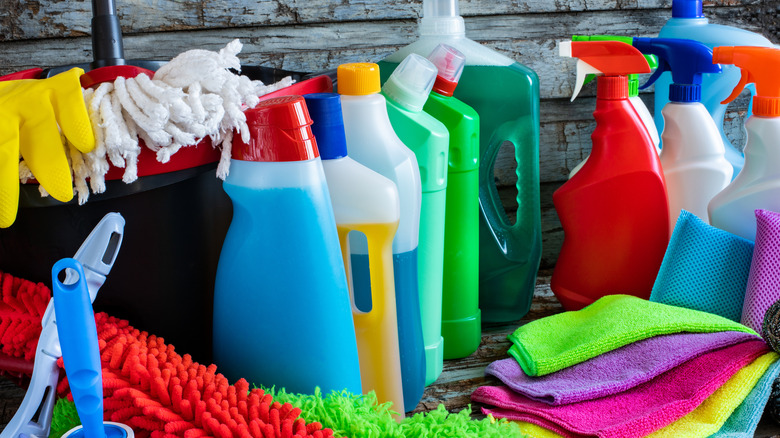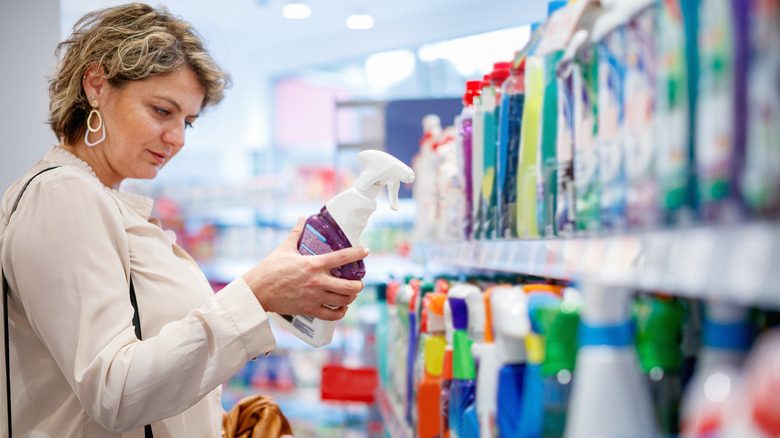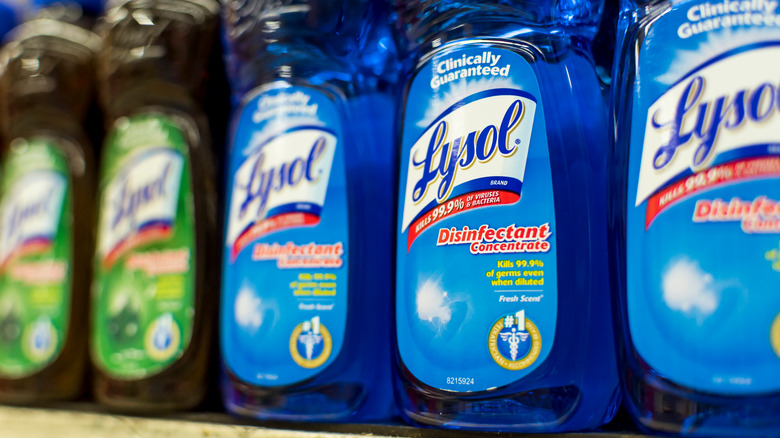The Cleaning Myth You Need To Stop Falling For
We may receive a commission on purchases made from links.
Have you ever walked into a public place or home and thought, "Mmm. It smells so clean." There's just something about that pine-scented all-purpose cleaner, lemon-scented furniture spray, and lavender-scented floor cleaner that pleases the nose and leads us to believe we're in a clean environment, but is it actually clean? What is the "clean smell" anyway, and what makes something clean? Unfortunately, the potent fragrance in many cleaning products doesn't necessarily equate to germ-killing, disinfectant properties. So, while you may have a kitchen or bathroom that smells great, there could still be viruses and bacteria lurking.
Merriam-Webster defines "clean" as free from dirt, pollution, contamination, and disease, but can a fragrance alone give you that? Not exactly. In most cases, the fragrance in cleaning products is a combination of chemicals that aren't designed to do anything more than create a pleasing aromatic effect. If you want a clean, disinfected home, you'll need to look for more than an alluring aroma. Always read the label and active ingredient list on your cleaning products. They'll tell you what results you can expect, whether deodorizing, germ-killing, or both.
What to look for in a cleaning product
The cleaning section of a grocery store can be overwhelming with all the product options to choose from, but if you know what to look for, it can help narrow your search. If you want a truly clean home, hunt for products that use phrases like "kills germs," "disinfects," "kills bacteria/viruses," or "anti-bacterial." If the product bottle uses phrases that focus primarily on fragrance and cleaning without specifying how it cleans, it may not provide the germ-killing power you want.
In addition to the colorful, eye-catching text on the front label, you should also read the fine black print in the list of active ingredients. Bleach, or sodium hypochlorite, is widely known to have virus-, bacteria-, and fungi-killing abilities (via National Library of Medicine). Quaternary ammonium compounds, which typically end with the words "ammonium chloride," can also kill these microbes, per ScienceDirect, so look for these words in the list of active ingredients.
Cleaning products that smell good and kill germs, and some that don't
Now that you know what to look for in a cleaning product – if you want to kill germs and disinfect the surfaces in your home – you can shop more confidently. But to save you some time, here are a few of the popular name-brand cleaners that offer a pleasing aroma and kill 99.9% of viruses and bacteria: Lysol Clean & Fresh Multi-Surface Cleaner in Sparkling Lemon & Sunflower Essence scent, Original Pine-Sol Cleaner, and Fabuloso Antibacterial Multi-Purpose Cleaner in Sparkling Citrus scent.
You can also find several generic, store-brand cleaners that make the same claim, including Walmart's Great Value Multi-Purpose Cleaner in Lemon scent, Field & Future by HEB Disinfecting Multi-Surface Cleaner, and Kroger Disinfecting Wipes in Fresh scent. On the other end of the cleaning spectrum are the smell-good products that don't claim to kill germs. These include Fabuloso Original Multi-Purpose Cleaner in Lavender scent, Mr. Clean Multi-Surface with Gain Moonlight Breeze scent, and Mistolin All Purpose Cleaner in Lilac.


